Doug Addleman
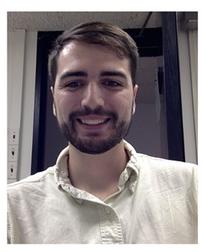
Doug is a PhD graduate of the Department of Psychology studying cognitive and brain sciences. His research seeks to understand how the brain focuses on visual and auditory stimuli through spatial attention. Doug is particularly interested in ways the brain can implicitly learn to attend to important objects through experience and how these skills can be used by people with sensory loss to improve their daily function.
Translational Interests: Strategies for improving spatial localization and attention in people with vision and/or hearing loss
John Basile
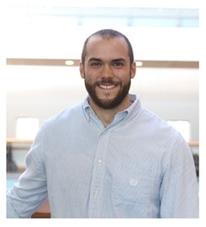
John is a PhD candidate in the Department of Biomedical Engineering focusing on neural engineering and auditory sciences. His research investigates novel ultrasound technologies and stimulation strategies for the treatment of hearing disorders. John's research initially focuses on safety studies in animal models in order to perform psychoacoustic studies with ultrasound stimulation directly in humans towards developing a new type of hearing aid technology.
Translational Interests: How to efficiently develop novel technologies to benefit an at need patient population
Chris Curry
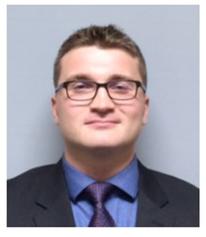
Chris is a Ph.D. candidate in the School of Kinesiology. Chris has sought to link basic science to real-world applications with interest in using his expertise in Human Factors and Kinesiology for the development and enhancement of medical devices and products that can be utilized for preventive, diagnostic and rehabilitation purposes. His research interests include the following: (1) Cybersickness with Head-Mounted VR Displays (2) Medical Device Usability (3) Gamification in Physical Rehabilitation Settings (4) Ergonomics and Anthropometrics in Product Design. Chris has interned as a Human Factors Engineer at Mayo Clinic and Smiths Medical.
Steven Gianakas
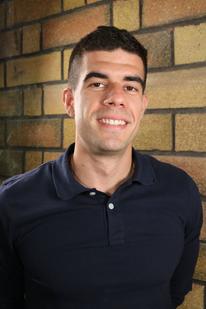
Steven Gianakas, Au.D. is a PhD student in the Department of Speech-Language-Hearing Science focusing on speech perception and listening effort in individuals using hearing aids and cochlear implants. His research involves improving our knowledge of the effortful aspects of speech understanding and how this often overlooked aspect of hearing loss can be translated to and addressed in clinical settings.
Translational Interests: Leveraging physiological measures of effort to develop clinically feasible tests of listening effort.
Daniel Guest
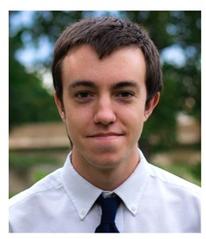
Daniel is a PhD student in the Department of Psychology studying auditory perception. His research investigates pitch perception from many angles: its limits, its neural basis, and how it applies in daily life to help us listen to the world around us. He combines standard methods in behavioral psychology with computational models of the auditory system to pursue this topic in a multidisciplinary way.
Translational interests: How hearing loss affects speech understanding in difficult listening situations, how hearing loss affects pitch perception
Saumya Gupta
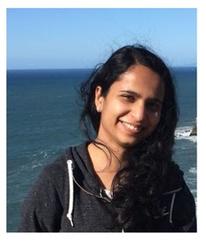
Saumya is a PhD candidate in the Department of Ecology, Evolution and Behavior studying auditory perception in animals. She is interested in understanding the animal equivalent of the cocktail party problem, i.e., how do animals perceive vocal signals in noisy social environments. Her research specifically focuses on the challenges faced by frogs in noisy environments and the mechanisms that they use to overcome these challenges.
Translational Interests: Taking inspiration from the biological solutions to cocktail party like problems to develop innovative technological strategies for extracting signals from noise
Abigail Heiller
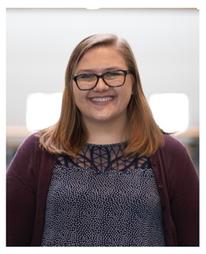
Abby is a PhD student in the Department of Biomedical Engineering focusing on neural engineering and auditory sciences. Her research investigates the development and translational of an intracranial auditory nerve implant (ANI) to benefit severe-to-profound hearing loss patients. Abby’s research focuses on performing cadaver studies to determine the specifications of the auditory nerve to aid in the device design and the development of psychoacoustic tests to evaluate the performance of the ANI device.
Translational Interests: How to efficiently develop assistive technologies to benefit an at need patient population
Maria Linn-Evans

Maria is a PhD candidate in the Graduate Program in Neuroscience focusing on motor neuroscience and Parkinson's disease. Her research investigates neural oscillations and motor pathway excitability during active and passive movements in people with Parkinson's disease. Maria's research seeks to understand how certain types of movement and related sensory feedback can increase movement impairment severity in Parkinson's disease.
Translational Interests: Understanding the association between neural activity and symptom severity in Parkinson's disease in order to inform therapeutic interventions
Sam Montoya
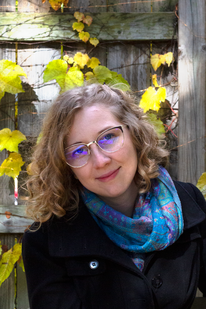
Samantha (Sam) A. Montoya is a PhD student in the Neuroscience Graduate Program supervised by Dr. Michael-Paul Schallmo and Dr. Stephen Engel. Sam studies the visual system, with a particular interest in populations who experience altered visual perception. Her work includes studying visual processing and perception in people with psychosis spectrum disorders and Visual Snow Syndrome with behavior and neuroimaging methods. Visual Snow Syndrome is a condition characterized by the persistent experience of flickering specks covering the entire visual field. In addition to her research, Sam likes to communicate scientific findings with the community through art and advocates for people with visual disabilities.
Translational Interests: Developing treatments/technologies to minimize the barriers people with visual impairments and visual conditions face in everyday life.
Karen Navarro

Karen is a PhD candidate in the Department of Psychology focusing on neuroimaging and visual adaptation. Her research investigates age-related macular degeneration (AMD). Karen’s research focuses on normally-sighted human participants in order to explore how the adult visual system adapts to different visual environments. Her research aims to understand neural plasticity in the adult visual system in order to detect AMD before severe damage to retinal cells occurs.
Translational Interests: How to efficiently develop early detection methods for diagnosing visual loss due to AMD
Kristi Oeding
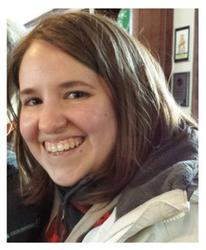
Kristi is a PhD student in the Department of Speech-Language-Hearing Sciences focusing on hearing aids and speech recognition in noise. Her research investigates psychoacoustic measures used to predict speech recognition in noise and using functional near-infrared spectroscopy to evaluate listening effort.
Translational Interests: How to take methods of evaluating the auditory system and use them in a clinical setting to predict outcomes with hearing aids
Erin O'Neill
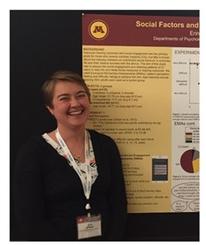
Erin is a PhD graduate of the Department of Psychology focusing on cognitive and brain sciences. Her research focus is in the domain of psychoacoustics and deals primarily with investigating factors that contribute to variability in hearing outcomes of adult cochlear-implant users. Erin explores different kinds of cognitive and social compensation related to hearing loss and how factors such as working memory, social engagement, and listening strategies mediate hearing success in individuals with cochlear implants.
Translational Interests: How to leverage cognitive and social factors to improve hearing outcomes in cochlear-implant users
Gerardo Rodriguez
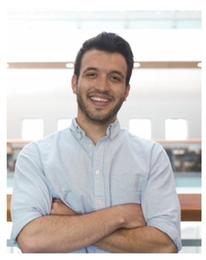
Gerardo is a PhD candidate in the Department of Biomedical Engineering focusing on neural engineering and auditory sciences. His research is focused on characterizing the effects of ultrasonic stimulation on the auditory pathway in a guinea pig model towards developing a new type of hearing aid technology. His interests lie in non-invasive technologies, neural decoding, and medical devices.
Translational Interests: How to efficiently develop novel technologies to benefit an at need patient population
Jacquelyn Sertic

Jacquelyn is a PhD student in the School of Kinesiology. Her research interests include normal and abnormal sensorimotor function in aging populations. Her ongoing research projects focus on the implications of somatosensory impairment on motor function in people with Parkinson’s disease.
Translational Interests: Development of individualized rehabilitation programs for the improvement of motor control for people with movement disorders.
Caitlin Sisk
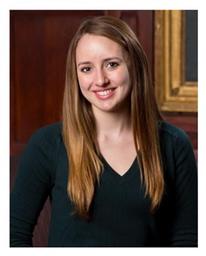
Caitlin is a PhD candidate in the Department of Psychology focusing on visual attention and spatial processing. Her research investigates the effects of experience on attentional guidance in space. Caitlin's research uses virtual reality to uncover the mechanisms that drive optimization of attention with the goal of designing a training program that could be used to compensate for cognitive or sensory loss that occurs with age.
Translational Interests: How to leverage intact attentional learning abilities to compensate for cognitive or sensory loss and improve navigation
Link Swanson
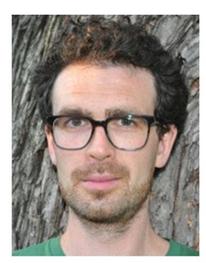
Link is a graduate student in the PhD Program in Cognitive Science and the MA Program in Philosophy at the University of Minnesota. His research aims to characterize the brain mechanisms of expectation in perceptual and cognitive information processing. Toward this goal, Link investigates the role of the serotonin system in supporting expectation-related neural processes, with a specific focus on understanding the perception-altering mechanisms of classic psychedelic drugs.
Translational Interests: Use recent breakthroughs in the neuropsychopharmacology of psychedelic drug effects to understand how the brain's sensory systems generate perceptual scenes
Matthew Waggenspack
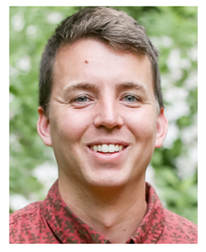
Matt is a AuD/PhD student in the Department of Speech-Language-Hearing Sciences focusing on clinical audiology and hearing sciences. His research investigates novel processing strategies used in sensory aids for the treatment of hearing loss. His research also focuses on identification of risk factors for the development of hearing and balance disorders.
Translational Interests: Improvement of sensory aids to improve quality of life for patients with hearing loss
Harley Wheeler, AuD
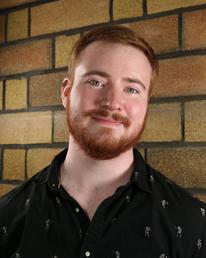
Harley is a PhD student in the Department of Speech-Language-Hearing Sciences focusing on speech prosody and its perception by cochlear implant users. His research investigates perceptual access and weighting of acoustic cues signaling talker emotion and intent. He is interested in the advantages of speech prosody measures over commonly-used speech intelligibility testing in predicting quality of life reported by patients.
Translational Interests: Clinical use of speech prosody measures to guide audiologic treatment and improve patient quality of life outcomes.
Walter Wu
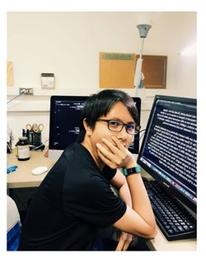
Walter is a visually impaired PhD student in the Department of Psychology. His research interest is on visual perception with primary emphasis on low vision. Ongoing research projects focus on the impact of acuity reduction on visual and multi-sensory reading, understanding how visual impairment affects people’s daily functions, development of assistive technology, and how the reduced density of retinal photoreceptors impairs contrast coding in the visual pathway. Psychophysics, computational modeling, survey, and AR/VR technology are employed to address these questions.
Translational Interests: How to improve visually impaired people’s qualities of lives by applying current knowledge of our sensory systems
Shan Yu
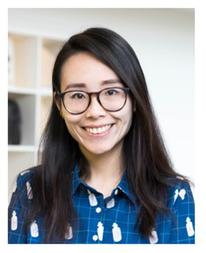
Shan is a Human Factors and Ergonomics PhD student in the College of Design focusing on Design in Healthcare Innovation. Her research investigates how to improve usability and information digestion in the medical devices and system. Shan's research initially concentrates on novel studies in medical rehabilitation with gamification to improve patient's cooperation level and clinical results.
Translational Interests: How to develop innovative methods to improve medical devices usability and increase user's satisfaction to benefit clinical treatments
Shelby Ziccardi
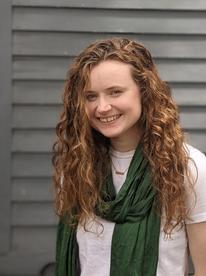
Shelby is a PhD student in the Department of Computer Science and Engineering focusing on the capture and simulation of natural movement. With her research, Shelby hopes to improve understanding and representation of atypical movement patterns via quantitative means. Currently, her research involves developing quantitative clinical tools for evaluating bimanual movement through simple video footage.
Translational Interests: How to leverage advancements in motion capture and machine learning to deepen understanding of neuromotor control and movement patterns in broad patient populations.